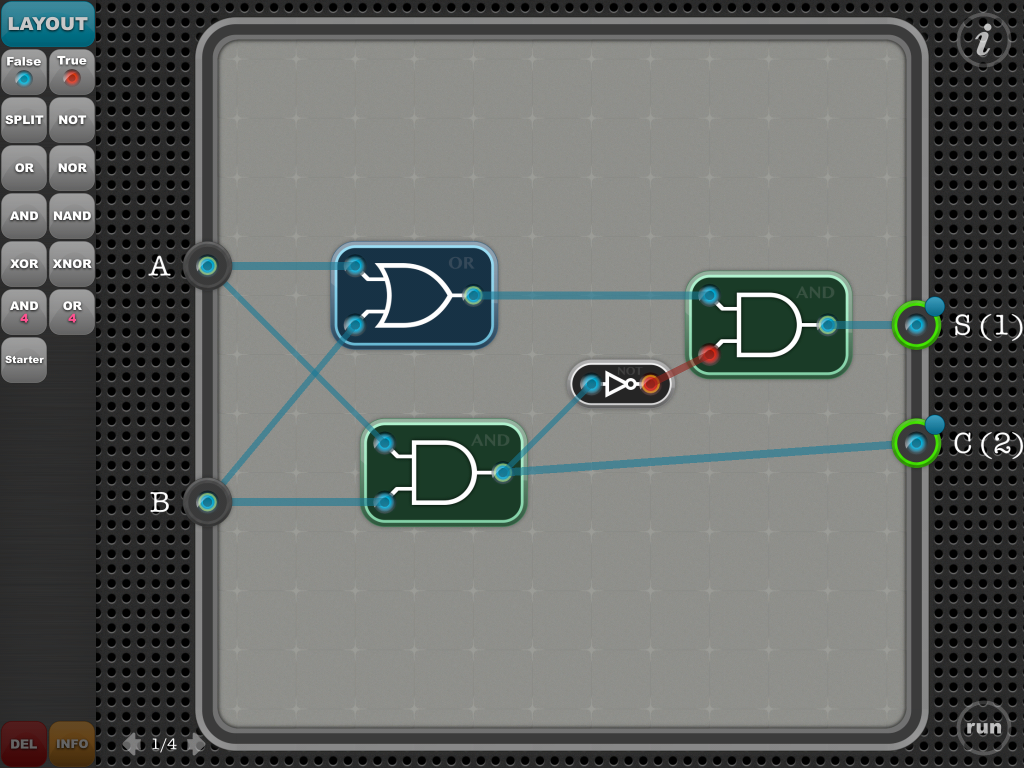I had this idea for a way to revolutionize the gift card market, at least for digital media services like Amazon’s ebook or Apple’s iTune. Here is how it would work:
1. I’d buy a bunch of items that I didn’t really care if the receiver wanted but I liked for some reason. (For example, spend $50 buying songs with the word “bride” or “wedding” in the title for a wedding present. Or buying songs that spelled out the receiver’s name when put together. Or purchasing a bunch of gag books related to some in-joke I had with the receiver.)
2. The giftee would get the option to accept any (or all) of the items. The ones unaccepted would become a gift card so the recipient could spend the money however they wanted.
Thus, I could spend some time and thought on a gift but the recipient could get something they actually wanted. Win all around.
Happily, while Amazon doesn’t exactly have this, they have something close. I send gift ebook (or MP3s) and the recipient can opt for cash (well, credit) instead.
It has a few downsides but let me change the subject for a bit.
My brother and I aren’t close. I’m a little sad about that but it has always been true. Our mom used to keep us connected but since she passed away a few years ago, we have to work to talk to each other.
I don’t really know what his life is like other than very different than mine. He says he’s happy. He said he liked it when I sent him steaks (and when I sent him towels but not when I sent him cash).
When he visited once and had dinner, he’d read about ShotSpotter and wanted to talk about the math and physics. I think he reads a lot but I’m not sure. I know he has my mom’s old kindle (3G) but not if he used it. It is weird, not having a clue what he’d honestly need or want.
When I found that he could trade in books for amazon cash, well, it seemed like a good way to give him something useful and spend sometime communicating that, even though I don’t communicate well with him, I do love him.
Here are the books I sent him, along with some reasoning as to why.
- When my brother was a teenager, he read Steven R. Boyett’s Ariel. It was a dystopian urban fantasy book, published in 1983, about thirty years before the rest of the urban fantasy. (Ok, there was Charles de Lint which is all lyrical but not dystopian, not very gritty.) My brother loved the Ariel book. Also, when I finally got to read it, I loved the book. A year or two ago, I found Boyett’s Elegy Beach, published in 2009, written so about the same amount of time had passed in the universe. I didn’t re-read Ariel, too afraid it might not hold up. But I liked the new one. It wasn’t great but I wanted to share it with my brother. Maybe it formed the kernel of this gifting idea.
- Next on the list is the non-fiction Thinking, Fast and Slow. This book is about how your brain works and how to use cognitive psych for fun and profit. It is the best $3 you can spend. I felt like sending it to everyone I know even though few people will make it past the 10% mark. It is not a difficult read but really, really long. I want to read it again but am intimidated as it took months and months to pour thought last time.
- Since my brother seems to like science, I put in one of my favorite science books of the year: Kraken : The Curious, Exciting, and Slightly Disturbing Science of Squid. Anything that made me really think about cephalopod intelligence and how aliens may think entirely different than we do… well, I had many lovely daydreams, expanding my ideas. This is an easy read, semi-autobiographical in addition to pop science fun.
- Next, more fantasy. I got the evil Patrick Rothfuss’ The Name of the Wind: The Kingkiller Chronicle: Day One. I love this book and its sequel. And, like so many others, I crave the final book in the trilogy. (The wait is why Rothfuss is evil. Once he gives me the next (and better be final) book, all will be well.) The writing and the story are both exceedingly addictive.
- I got him The Serpent and the Rainbow. Of all the books on the list, this is the one I wonder if he’s already read. Maybe. And if he hasn’t, will he think I’m attempting to be hip? Ahh, well, it has been sent so I needn’t worry further.
- Next, more fiction, specifically urban fantasy, I got Jim Butcher’s Storm Front (The Dresden Files, Book 1). I like Dresden a lot, he’s a wizard in modern day Chicago. He is made up of the hard sort of heroism of Dick Francis’ jockeys in a wonderful, complicated world.
- Though I agonized a bit over the overlap (and inevitable) comparison, I also got Seanan McGuire’s Rosemary and Rue: An October Daye Novel. It is also urban fantasy, also a hard sort of heroism (though with a heroine this time). These are both the start of their long-ish series. If you asked which series I most want the next installment of, it would be… Rothfuss, damn him. After that, I’d say October Daye even though my husband has only read (and very much enjoyed) Dresden.
- Back to non-fiction, the next book for my brother is Between Silk and Cyanide: A Code Maker’s War 1941-45. I want him to understand my love of code, puzzles, and spies. This book has all that and is fun to read… both times I’ve read it. It is another big one but a neat combination of history, autobiography, and cryptography basics.
- I hope he likes science as much as he’s said. Genome: The Autobiography of a Species in 23 Chapters
is written by Matt Ridley who has written other genomics books that I’ve really enjoyed, he’s a good storyteller. I plan to look for this one for myself soon too.
- Since I sent so much urban fantasy, I wanted to balance it out with some proper science fiction so Scalzi’s Old Man’s War was next in the list. I like this series very much. The writing is witty and the stories are tightly plotted. Sometimes a little preachy with its politics, this book remains engaging and interesting.
- Finally, I got him Quiet: The Power of Introverts in a World That Can’t Stop Talking. I recently started reading this book (and am enjoying it). It gets great ratings and I sort of hope it will help us talk to each other. Plus, on sale for $3 so, win!
So, 11 books, trade-able for about $75 worth of Amazon dollars. The main downside is that he has to trade each one separately instead of getting a list. For $75 worth of $1 songs, this would be cruel. Anyway, I hope he enjoys the books. I sure had a good time picking them out.
Ahh, and the ones I thought about sending but didn’t make the cut? There were a few:
- Hyperbole and a Half: Unfortunate Situations, Flawed Coping Mechanisms, Mayhem, and Other Things That Happened: I didn’t know if he had a new Kindle or my mom’s old B&W… turns out he had a Kindle Fire until last week when someone stole it; he’s planning to get another. This one will go on the b’day list for him. And pretty much everyone else I don’t give it to for Christmas.
- The Botany of Desire: A Plant’s-Eye View of the World: I can’t believe I forgot about this until I saw it in the used bookstore! I’d have sent it instead of Genomics, I think.
- The Ultimate Hitchhiker’s Guide to the Galaxy: When going for classic sci-fi how could I pass this up? Still, I managed to, though it is a good price for all the Adams’ Hitchhiker books.
- Boneshaker (The Clockwork Century): Don’t get me sidetracked into steampunk, I could get lost for days.
- Shards of Honor (Vorkosigan Saga): Where to start Vorkosigan? Young Miles didn’t come as an ebook set. I got frustrated trying to find an “in” and gave up, though I love the series. And I did start with Shards of Honor.
- Jumper: I love Steven Gould, maybe this will make the cut next time. But it is a little older and if he has been reading sci-fi, he’s probably already seen it.
So what else did I miss? What other sci-fi, fantasy, paranormal, science, history books do you get for someone you really should know well. I mean, did he read Harry Potter? Would he think those were good or childish? Would I really inflict the endless days of camping on anyone I care about?



